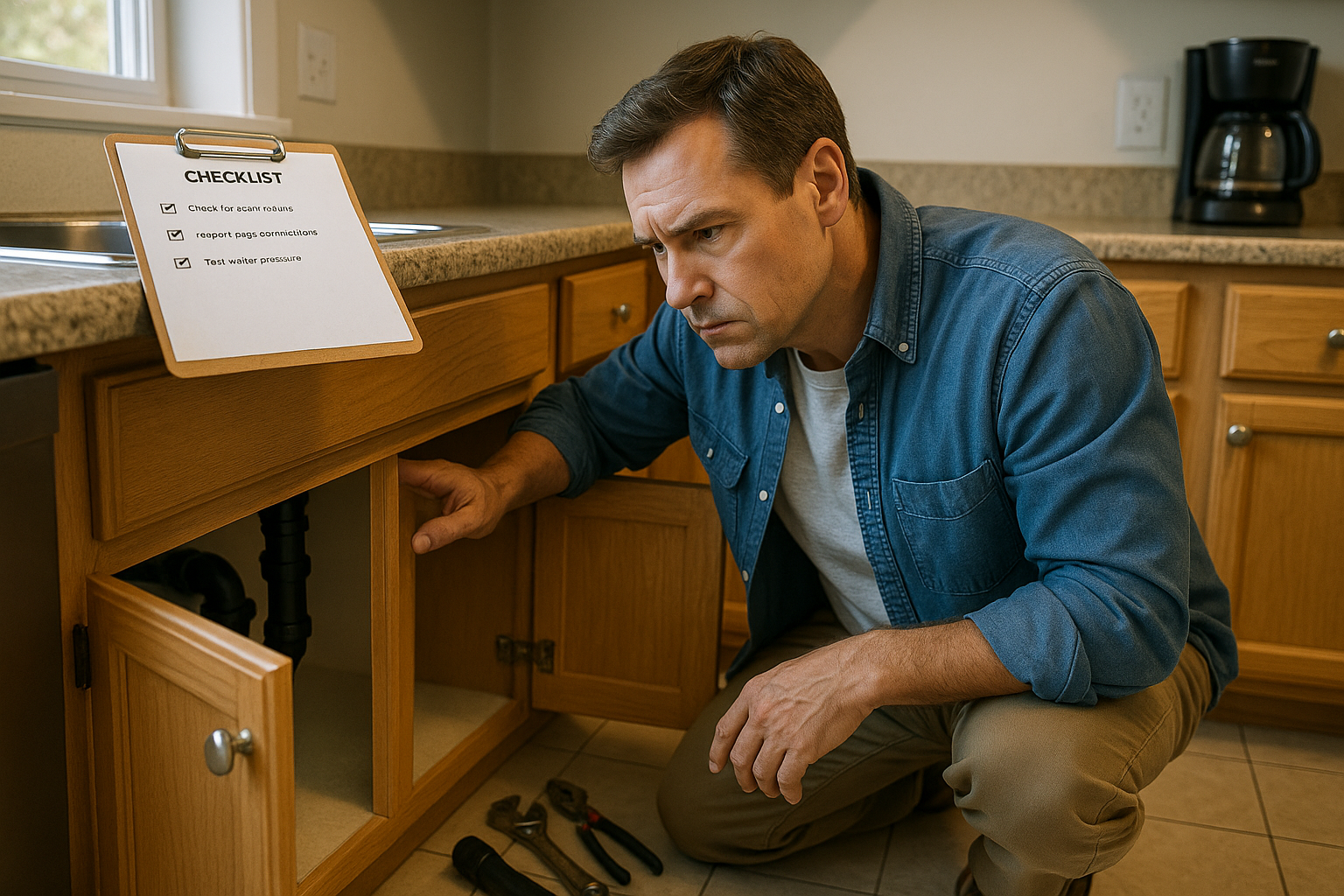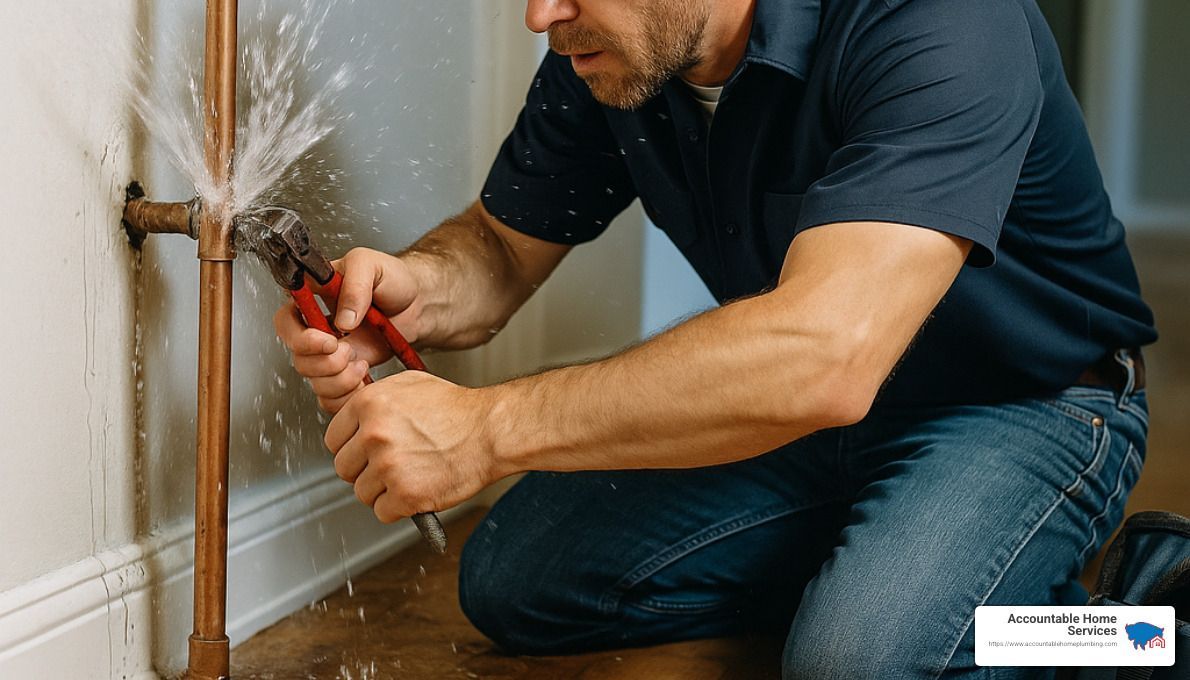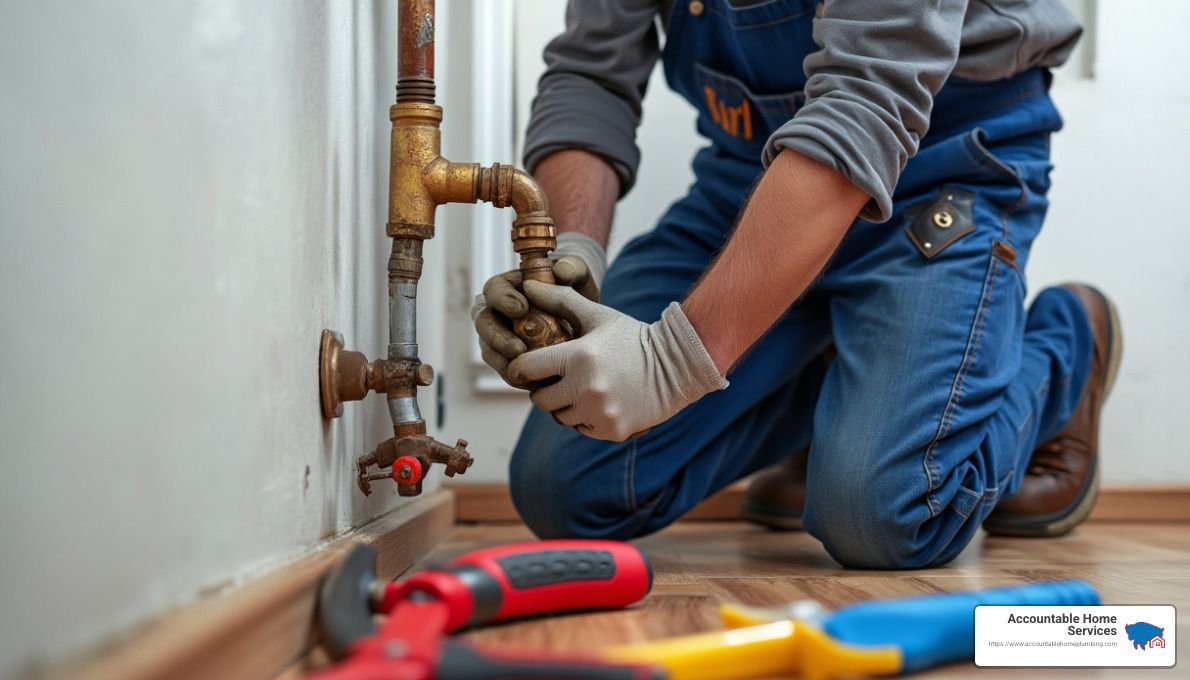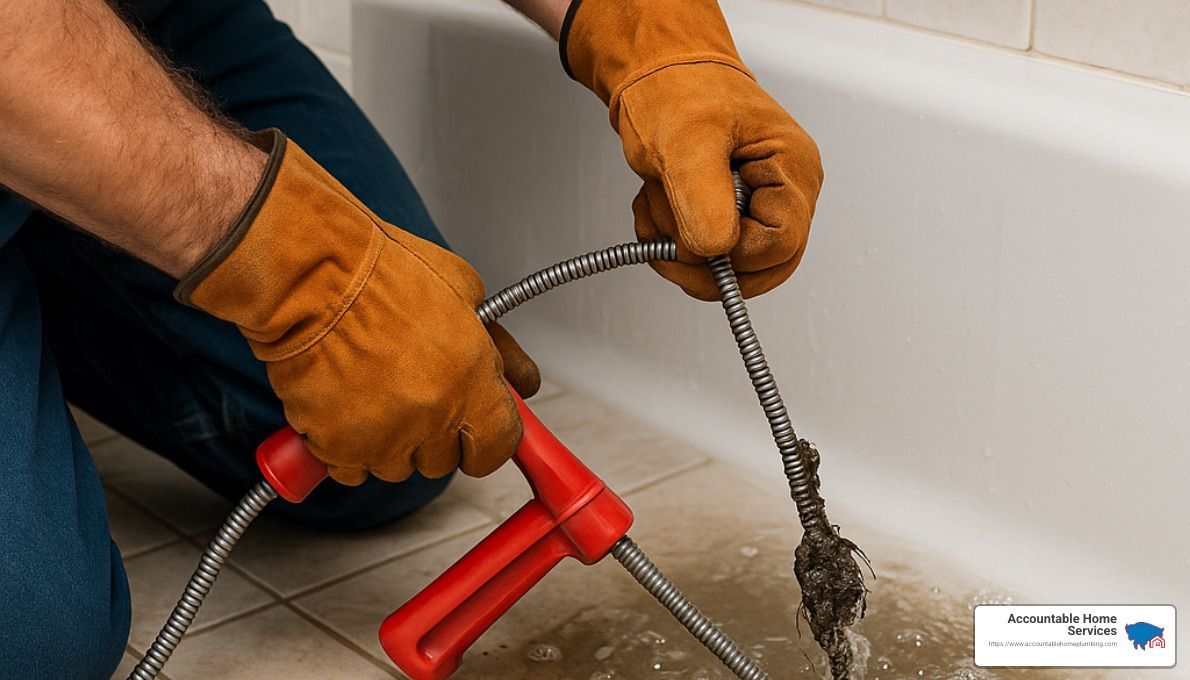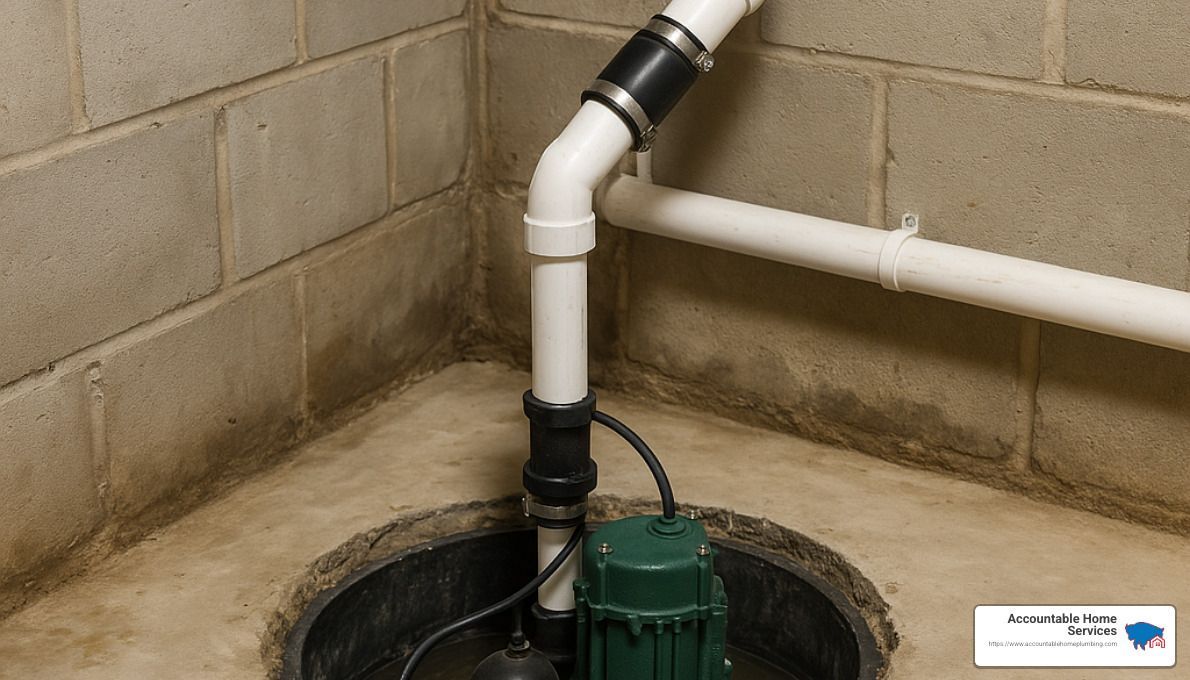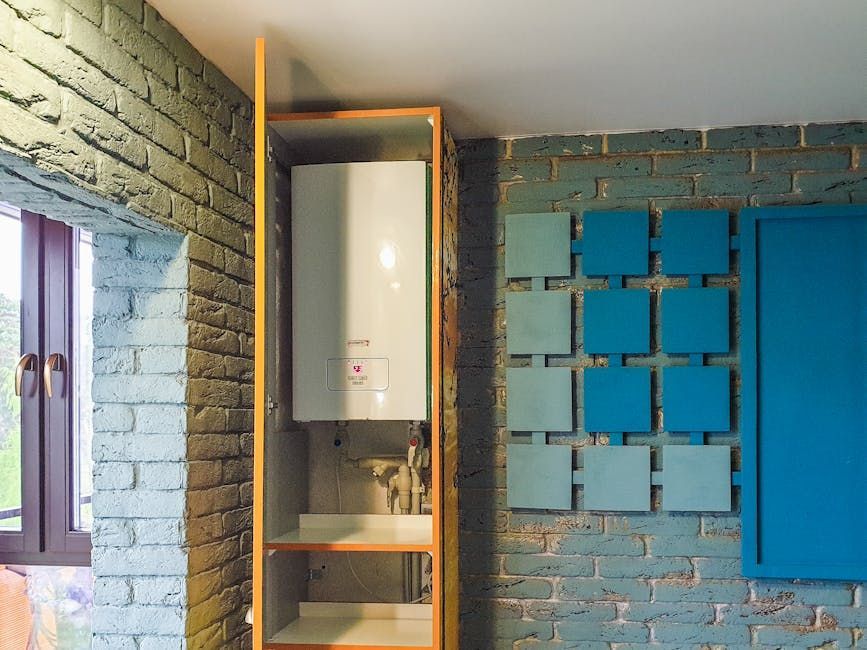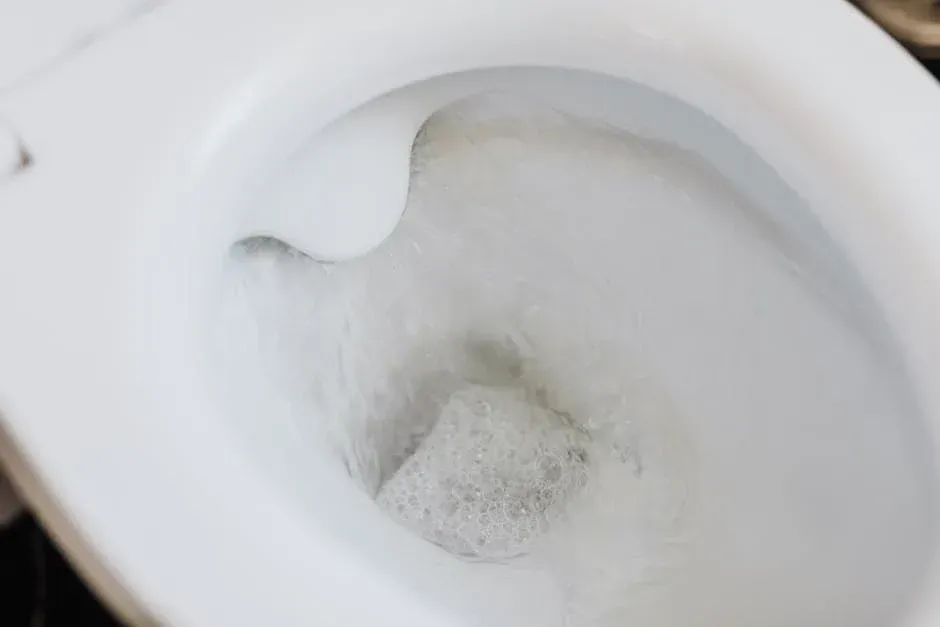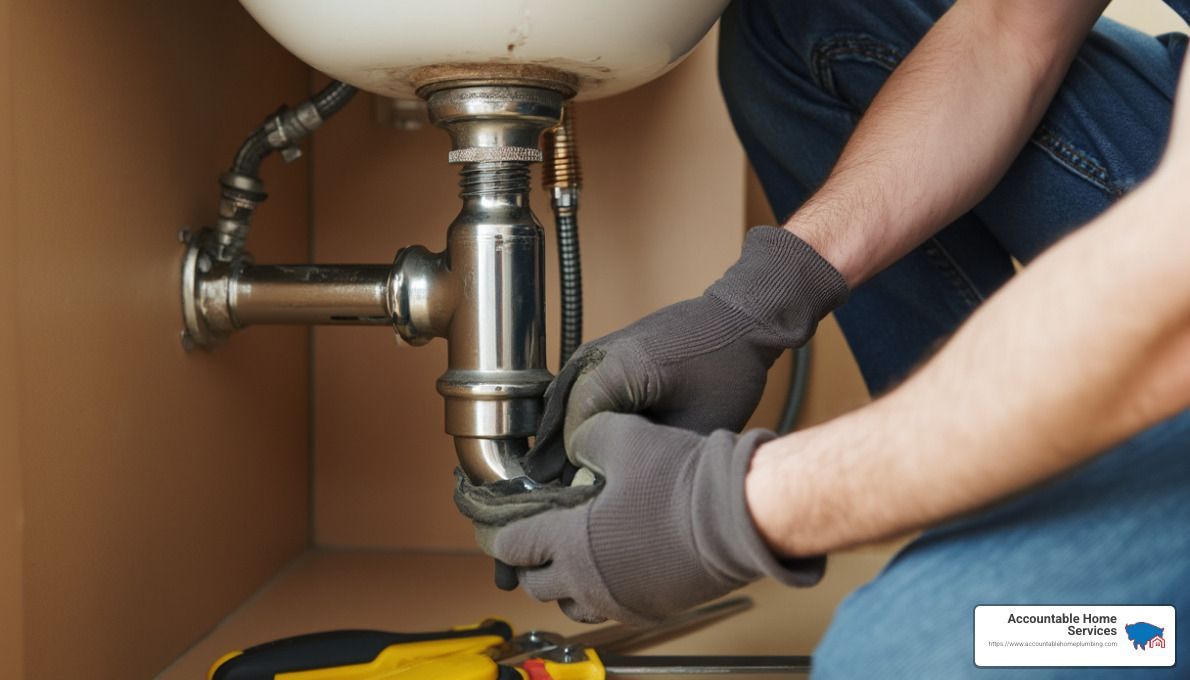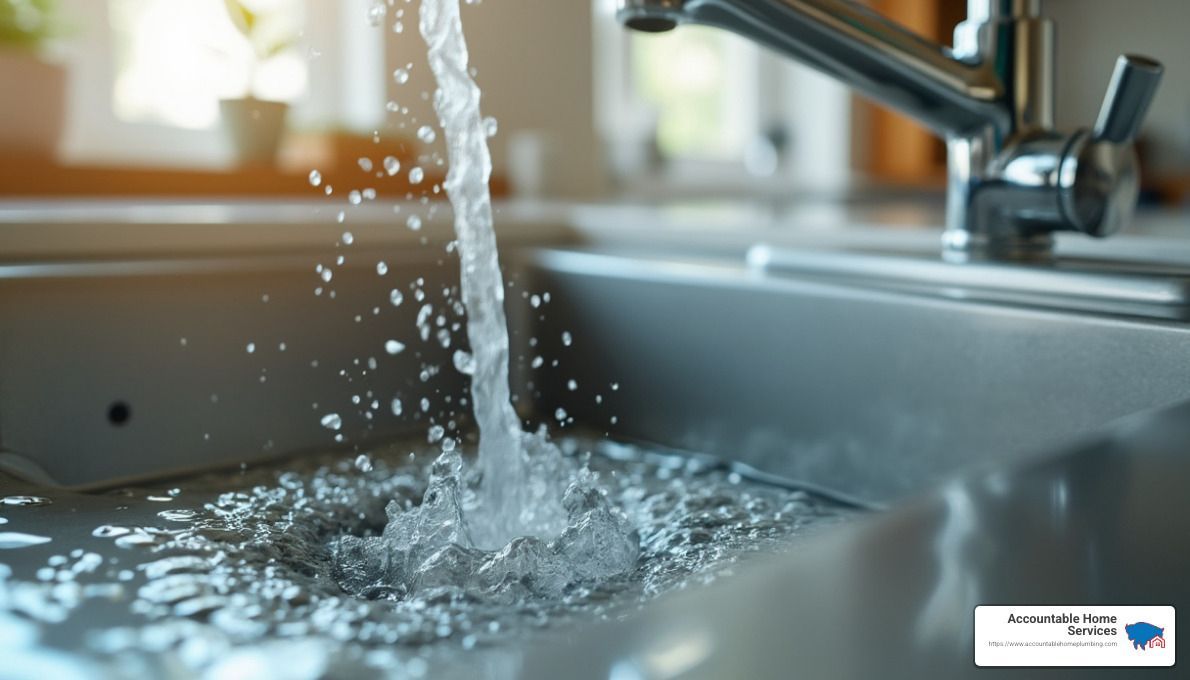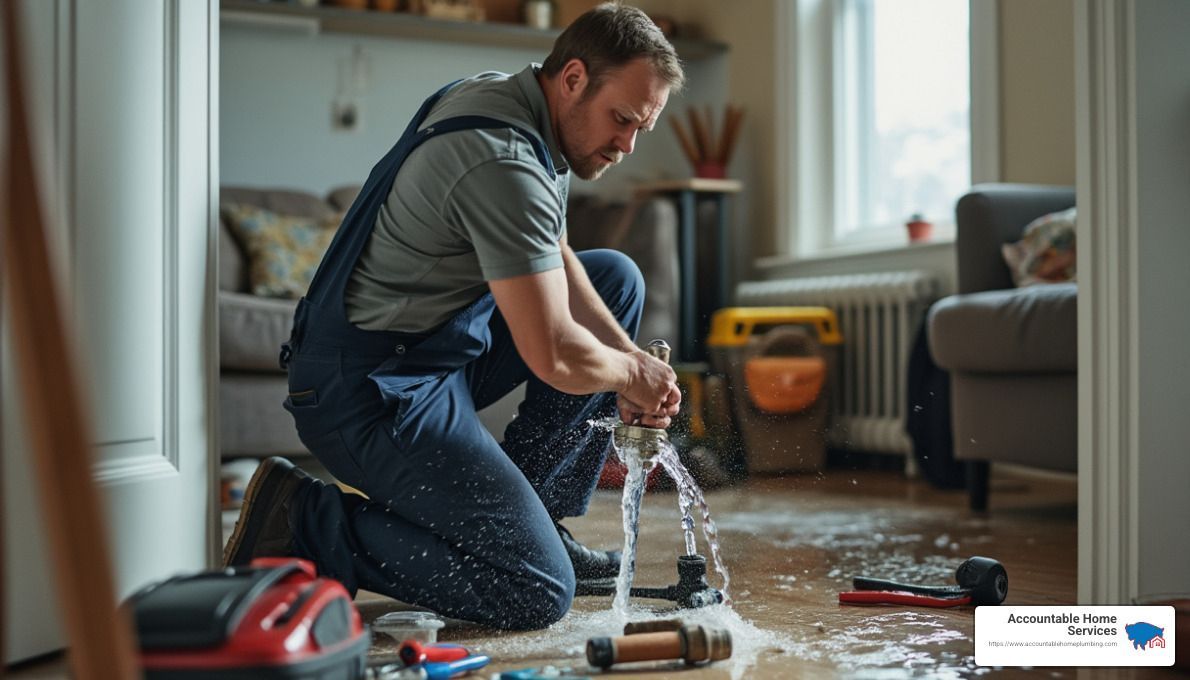Breathe Easy: Fixing Gas Leaks in Denver
When it comes to gas leak repair denver, knowing the signs and taking swift action can prevent dangerous situations. Here's what you must d
- Smell Rotten Eggs? That's a common sign of a gas leak.
- Hear a Hissing Sound? Indicates a potential leak in the line.
- Notice Dead Grass Outside? Could be from an outdoor gas leak.
- Immediate Action Required? Open windows, evacuate the premises, and once away from the building, call emergency services or a utility company.
A gas leak poses significant risks, including toxic inhalation and potential explosions. Addressing a gas leak immediately ensures the safety of your family, home, or business.
Welcome to Safe and Swift Solutions
I'm Mike Martinez, owner of Accountable Home Services. As a Denver native, I understand the urgency of gas leak repair denver. With years of experience, my team provides quick, reliable solutions you can trust.
Transitioning to identifying and understanding gas leaks, let's dig into their inherent dangers and effective emergency responses.
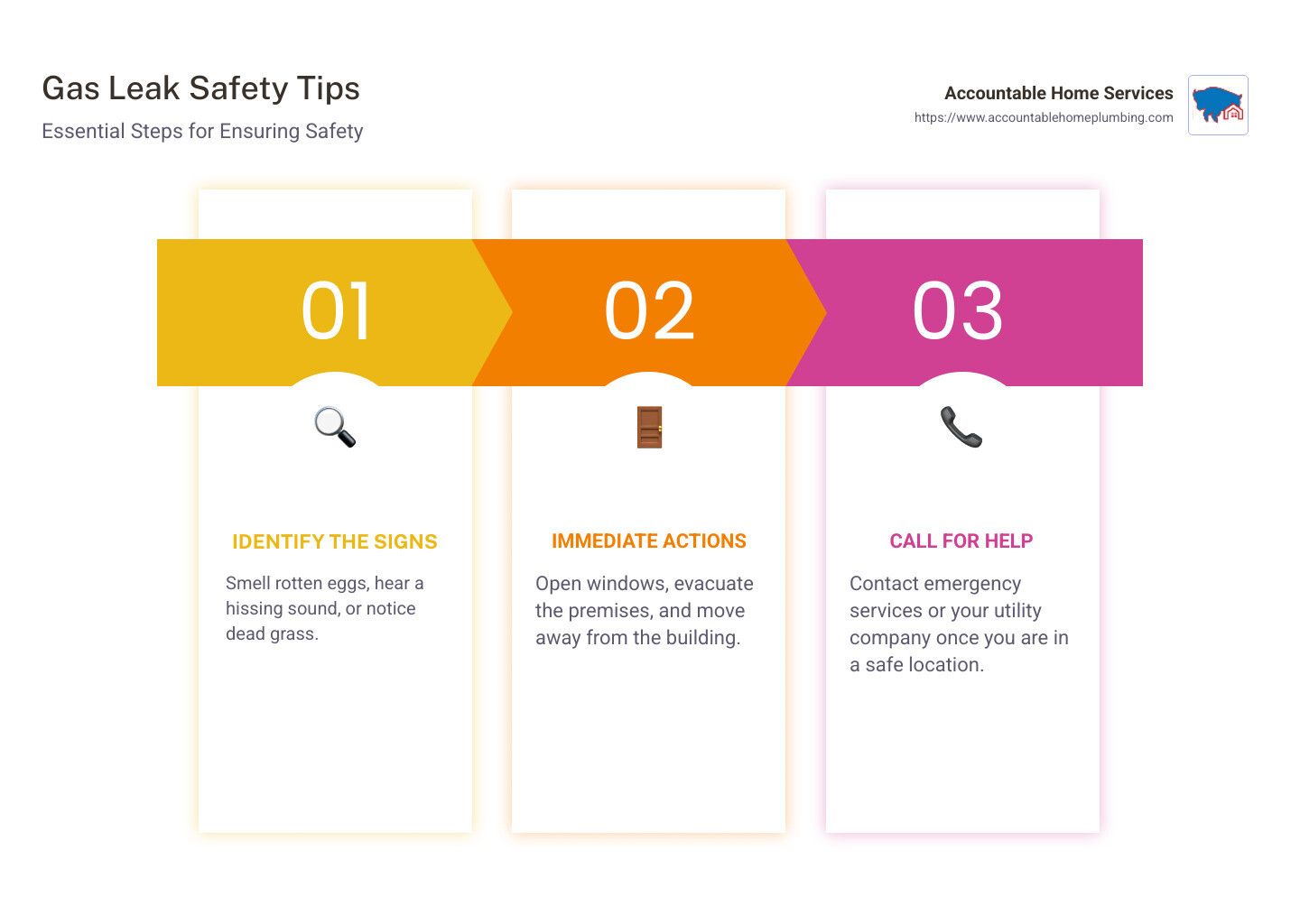
Understanding Gas Leaks
Gas leaks are not just inconvenient; they are downright dangerous. Natural gas leaks can lead to serious health risks and hazardous situations if not handled promptly.
Why Are Gas Leaks Dangerous?
- Explosions: The most alarming risk of a gas leak is an explosion. Natural gas is highly flammable, and a small spark—like flipping a light switch or using a phone—can ignite a major fire or explosion.
- Toxic Inhalation: Breathing in natural gas can be harmful. While natural gas itself is not toxic, it can displace oxygen in the air, leading to asphyxiation. Symptoms of gas exposure include headaches, dizziness, nausea, and even unconsciousness.
- Environmental Impact: Beyond immediate health risks, gas leaks contribute to greenhouse gas emissions. Methane, a primary component of natural gas, is a potent greenhouse gas that accelerates climate change.
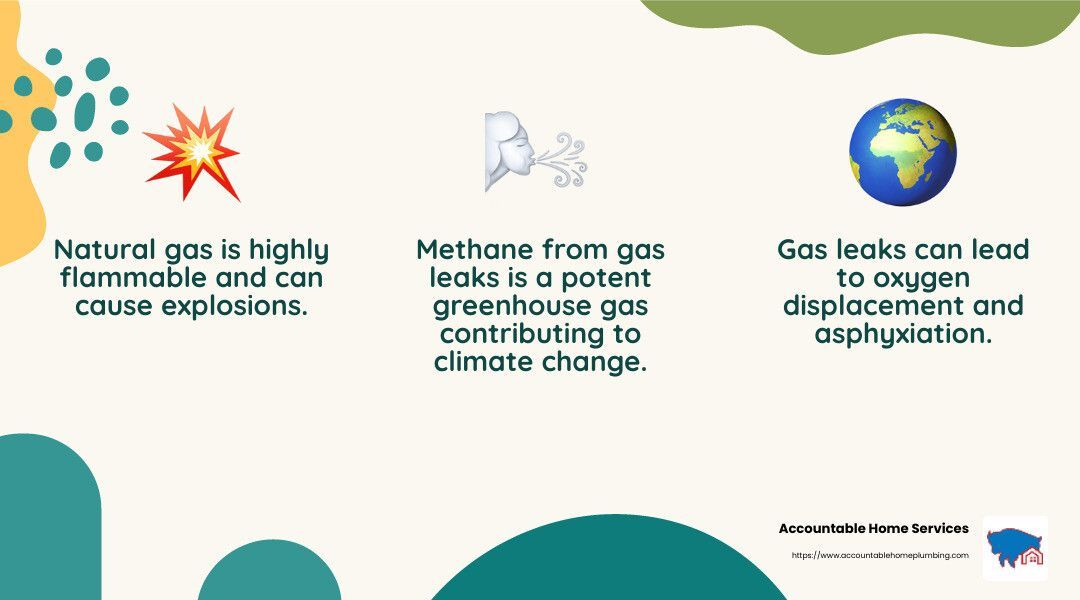
How to Identify a Gas Leak
The first step in dealing with a gas leak is recognizing it. Here are some common signs:
- Smell of Rotten Eggs: Natural gas is odorless, but utility companies add a substance called mercaptan to give it a distinctive, sulfur-like smell.
- Hissing Sounds: If you hear a hissing noise near your gas lines or appliances, it might indicate a leak.
- Dead Grass or Plants: Outdoor gas leaks can kill vegetation, leaving patches of dead grass or plants.
Immediate Actions to Take
If you suspect a gas leak:
- Do Not Use Electrical Devices: Avoid turning on or off any electrical devices, as they can spark an explosion.
- Evacuate Immediately: Get everyone out of the house. Do not attempt to locate the leak yourself.
- Call for Help: Once at a safe distance, contact emergency services or your local utility company. In Denver, you can reach Xcel Energy at 1-800-895-2999.
Understanding the dangers of gas leaks and taking swift action can protect you and your family. When it comes to gas leak repair denver, quick response is crucial.
Next, let's explore the steps you should take if you suspect a gas leak and the safety measures to follow.
Gas Leak Repair Denver
When it comes to gas leak repair in Denver, time is of the essence. Immediate action is crucial to ensure safety and prevent potential disasters. Here's how emergency services and professional repairs play a vital role in handling gas leaks effectively.
Emergency Services
In the event of a suspected gas leak, your first step should be to evacuate the premises and contact emergency services. Denver residents can call Xcel Energy at 1-800-895-2999 or dial 911 for immediate assistance. These services are trained to handle gas-related emergencies and will take swift action to secure the area.
Safety Tip: Always leave the building before making the call. Using a phone inside could ignite an explosion.
Professional Repair
Once the immediate danger is addressed, professional repair services are necessary to fix the leak. Only licensed professionals are legally authorized to repair gas lines. They have the expertise to identify the source of the leak and perform the necessary repairs safely and efficiently.
- Inspection: Professionals will conduct a thorough inspection to locate the exact point of leakage. This step is vital to ensure all potential hazards are identified.
- Repair: Depending on the severity of the leak, repairs may range from sealing small cracks to replacing entire sections of the gas line. Professionals use specialized tools and techniques to ensure the job is done right.
- Testing: After repairs, the gas line is tested to confirm that it is safe and fully functional. This step ensures that no leaks remain and that your home is safe for re-entry.
Safety Protocols
Safety protocols are a top priority during gas leak repairs. Professionals adhere to strict guidelines to minimize risk and ensure the safety of occupants and the surrounding area.
- Proper Equipment: Technicians use advanced leak detection equipment to accurately pinpoint issues without causing additional damage.
- Personal Protective Gear: Safety gear is worn at all times to protect technicians from potential hazards during repair.
- Communication: Clear communication with homeowners about the repair process and safety measures is essential. Homeowners are advised on when it is safe to return and any steps they should take to prevent future leaks.
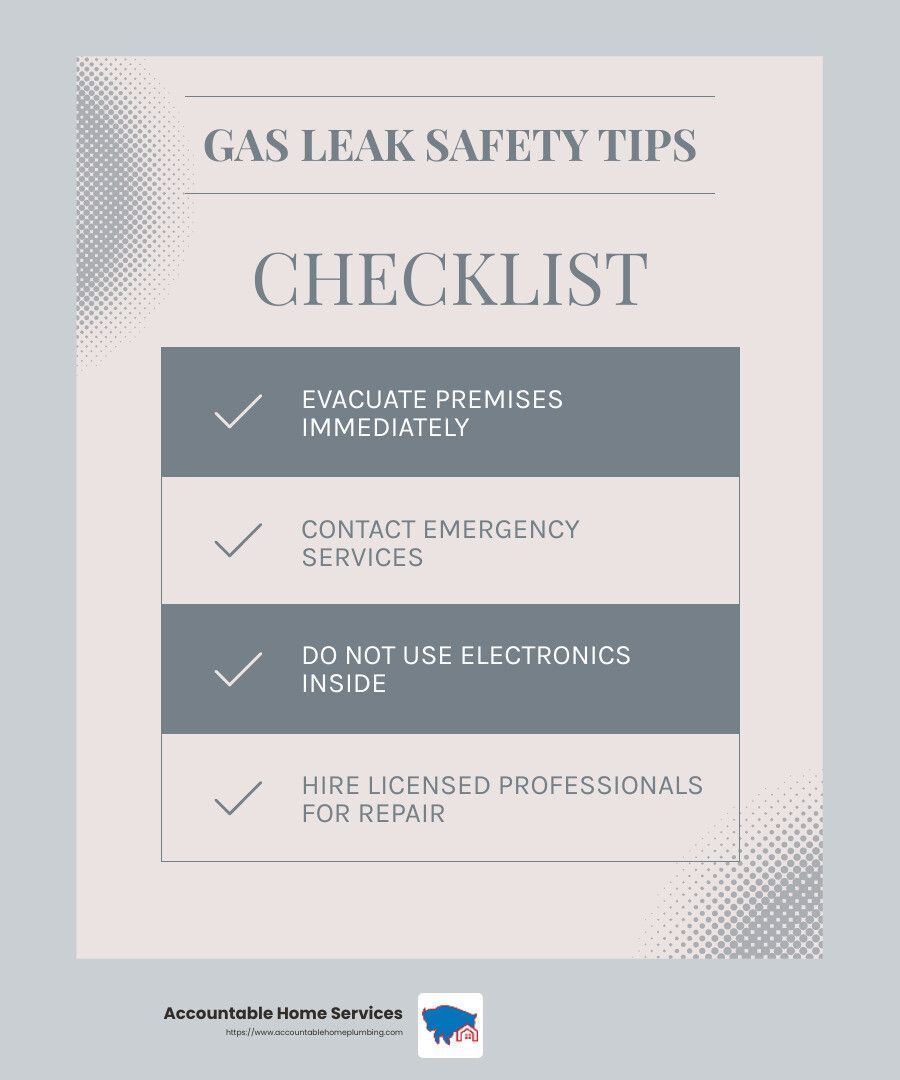
By relying on professional services for gas leak repair in Denver, you ensure that the problem is resolved safely and efficiently, protecting your home and family from potential harm. Next, we'll cover the signs of a gas leak and what actions you should take if you suspect one.
Signs of a Gas Leak
Recognizing the signs of a gas leak can be a lifesaver. Here are the key indicators you should watch out for:
1. Rotten Eggs Smell
The most common and noticeable sign of a gas leak is a strong odor similar to rotten eggs. Natural gas is naturally odorless, but utility companies add a chemical called mercaptan to give it this distinctive smell. If you detect this odor in your home or business, it's a clear warning sign of a potential gas leak.
2. Hissing Sound
Another indicator of a gas leak is a hissing or whistling sound near a gas line or appliance. This sound occurs when gas escapes from a small opening in the line. If you hear this noise, it’s crucial to act quickly by evacuating the area and contacting emergency services.
3. Dead or Discolored Grass
Gas leaks can also occur outdoors. If you notice patches of dead or discolored grass in your yard, it might be due to a gas leak underground. Gas escaping from a buried line can kill vegetation, leaving visible signs above ground. This is especially important to monitor after severe weather or natural disasters that may have disturbed gas lines.
These signs are crucial for early detection and prompt action. If you notice any of these indicators, it’s vital to follow safety measures immediately. In the next section, we'll discuss the steps you should take if you suspect a gas leak.
Steps to Take if You Suspect a Gas Leak
Suspecting a gas leak can be alarming, but knowing what to do can make all the difference. Follow these steps to ensure safety for you and everyone around you:
1. Evacuation
First and foremost, evacuate the building immediately. Whether you're in a home or a business, get everyone out as quickly and calmly as possible. Do not attempt to gather belongings or investigate the source of the leak. Safety comes first.
2. Avoid Ignition Sources
As you leave, avoid using anything that could cause a spark. This includes:
- Light switches
- Electrical appliances
- Phones
- Garage doors
Even the smallest spark can ignite gas, so it's crucial to leave these untouched.
3. Emergency Contacts
Once you are at a safe distance from the building, call for help. Use your cell phone to contact 911 or your local utility company. If you are in Denver, you can also reach out to Xcel Energy at 1-800-895-2999. These professionals are trained to handle gas leaks and will guide you on the next steps.
4. Await Professional Assistance
Do not re-enter the building until it has been declared safe by emergency responders or utility technicians. They will assess the situation, turn off the gas if necessary, and determine when it's safe to return.
These steps are essential in ensuring everyone's safety during a gas leak incident. In the following section, we will explore the gas line repair process, so you know what to expect once the immediate danger has passed.
Gas Line Repair Process
Once the immediate danger of a gas leak has been addressed, the gas line repair process begins. This process is crucial for restoring safety and ensuring your gas system functions properly. Here's how it typically unfolds:
1. Inspection
The first and most critical step is a thorough inspection. Skilled technicians use specialized equipment to pinpoint the exact location and cause of the leak. This might include pressure testing and using gas detectors to identify leaks that aren't visible to the eye.
Why is inspection so important? Because understanding the problem is key to fixing it effectively. Without a proper inspection, repairs might miss hidden issues, leading to future leaks.
2. Repair
Once the inspection is complete, the repair process can begin. The approach taken will depend on the nature and location of the leak:
- Pipe Replacement: If a section of the gas line is damaged beyond repair, it may need to be replaced. This ensures the integrity of the entire system.
- Joint Sealing: Sometimes, leaks occur at pipe joints. In such cases, resealing or tightening these joints can resolve the issue.
- Corrosion Repair: Environmental factors can corrode pipes over time. If corrosion is found, the affected sections may need treatment or replacement to prevent further leaks.
Professional repair is crucial because it ensures that the fix is not just temporary. Experts have the tools and experience to address the root cause of the leak, providing a long-term solution.
3. Testing
After repairs are made, rigorous testing is conducted to ensure safety and functionality. This includes:
- Pressure Tests: To confirm that the gas line can withstand normal operating pressures without leaking.
- Leak Detection: Using advanced sensors to ensure no leaks remain.
- System Checks: Ensuring all gas appliances and fixtures are working correctly and safely.
Testing is the final step to guarantee that the gas line is safe to use. It's essential for peace of mind and compliance with safety standards.
Understanding the gas line repair process can help you feel more comfortable and informed when dealing with a gas leak. Next, we will address some frequently asked questions about gas leak repair to further clarify any concerns you might have.
Frequently Asked Questions about Gas Leak Repair
Is it expensive to fix a gas leak?
The cost of fixing a gas leak can vary based on several factors. Here's what you should consider:
- Extent of Damage: The more extensive the damage, the higher the repair costs. Simple leaks at pipe joints might be less costly than replacing entire sections of corroded piping.
- Detection Methods: Advanced detection methods, like using thermal imaging or acoustic sensors, might add to the initial cost but are crucial for accurately locating and fixing leaks.
- Location of Leak: Leaks that are hard to access, such as those behind walls or underground, can increase labor costs.
While repairs might seem expensive, addressing gas leaks promptly can prevent more severe damage and higher costs in the future.
Who to call for a gas leak in Denver?
If you suspect a gas leak in your home, your first step should be to ensure safety. Here’s who to contact:
- Emergency Contacts: Immediately call Xcel Energy at 1-800-895-2999 or 911. They can provide emergency assistance and shut off the gas supply if necessary.
- Local Services: Once the immediate danger is addressed, contact a professional service like Accountable Home Services for repairs. They offer expertise in handling gas leaks and ensuring your home is safe.
What should you do if you believe you have a gas leak?
A gas leak is an emergency. Here's a step-by-step guide on what to do:
- Evacuate Immediately: Leave the building without turning on or off any electrical appliances. Avoid using phones inside the house.
- Do Not Use Open Flames: Avoid lighting matches or any open flames, as they can ignite the gas.
- Move to a Safe Distance: Once outside, move away from the structure to a safe distance.
- Call for Help: Use a mobile phone or a neighbor's phone to call Xcel Energy or 911.
- Wait for the All-Clear: Do not re-enter the building until emergency responders have declared it safe.
Being prepared and knowing the steps to take can make a significant difference in ensuring your safety and the safety of your home.
Conclusion
When it comes to gas leak repair in Denver, choosing the right service provider is crucial for your safety and peace of mind. At Accountable Home Services, we pride ourselves on offering reliable service with a commitment to transparency. Our team is available 24/7 to handle emergency repairs, ensuring that you're never left in a dangerous situation.
What sets us apart is our promise of upfront pricing with no hidden fees. We believe in transparency and honesty, so you know exactly what to expect before any work begins. This means no surprises on your bill, just expert service when you need it most.
Our trained professionals are ready to tackle any gas leak repair with precision and care. From initial inspection to final testing, we make sure every step is handled with the utmost attention to detail. Your safety is our top priority, and we follow strict safety protocols to ensure that your home is secure.
If you're in need of a reliable partner for gas leak repair or any other plumbing services, look no further than Accountable Home Services. Contact us today to learn more about how we can help keep your home safe and sound.

